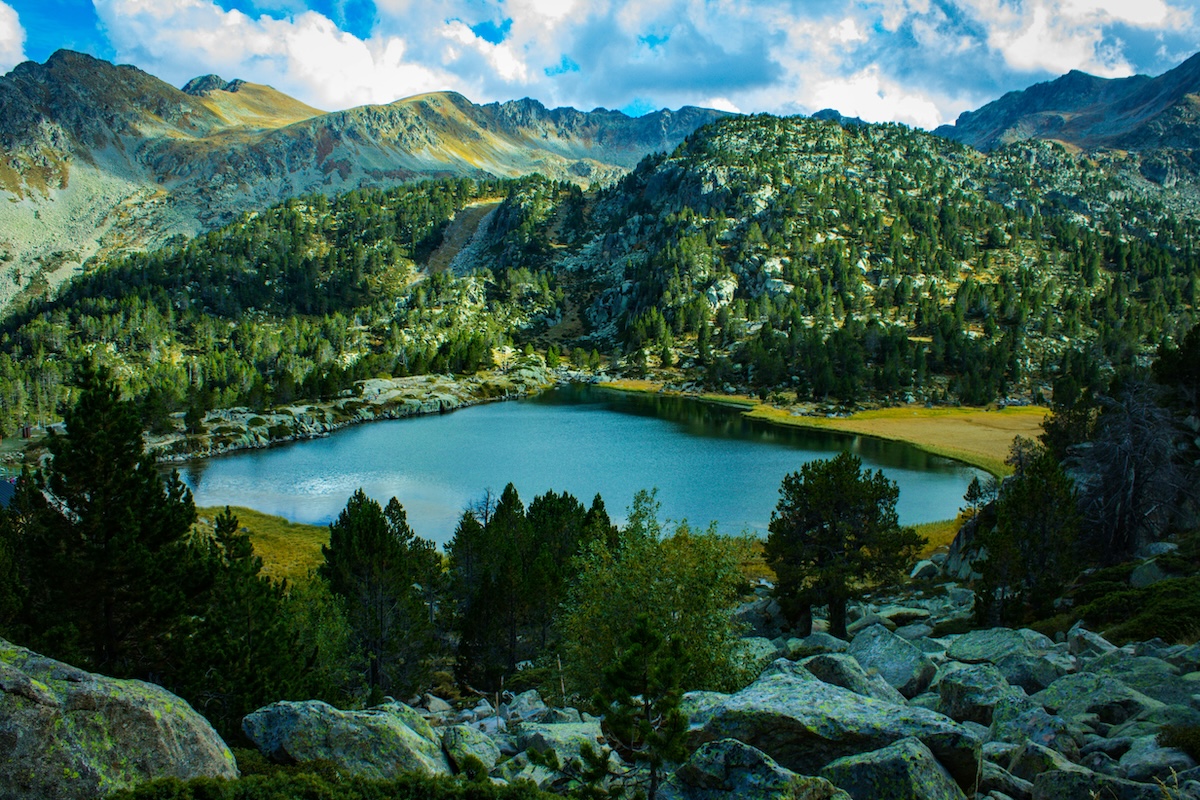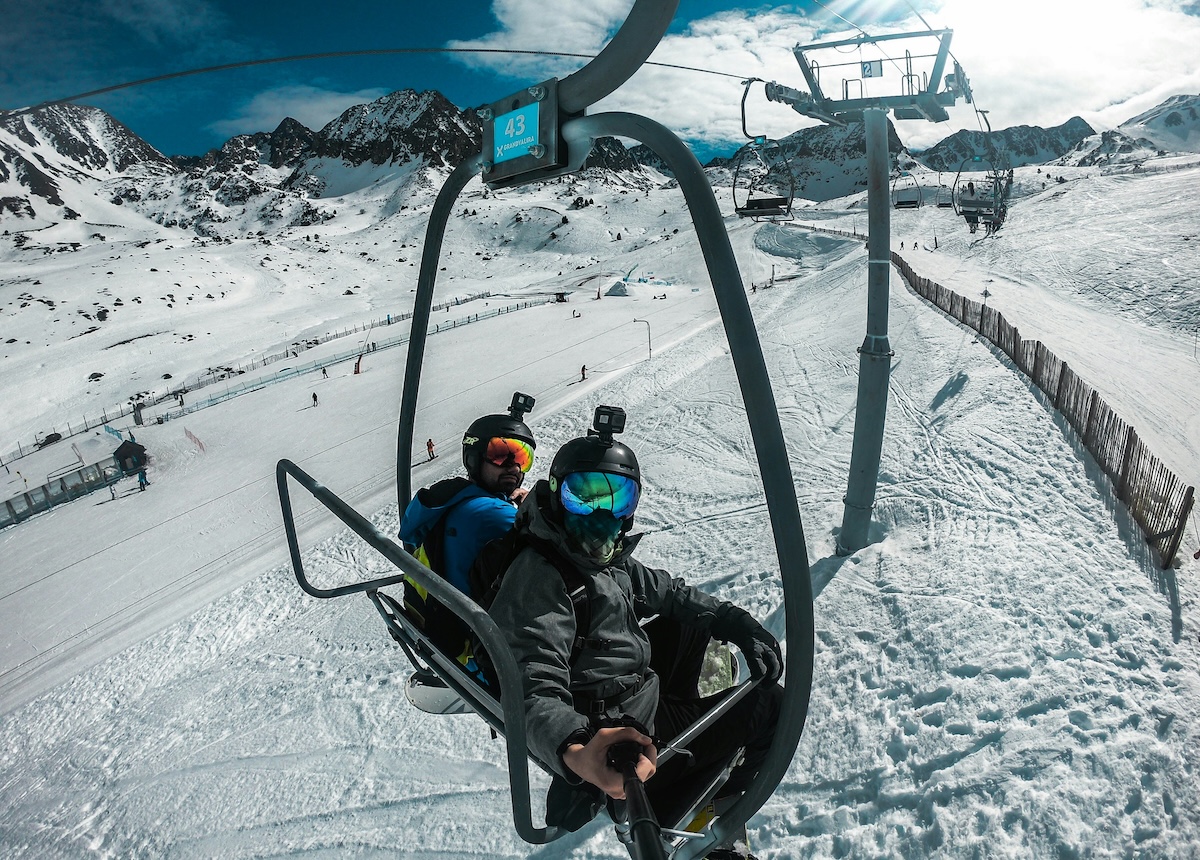
20 Fun Facts About Andorra
By: Sarah Stone
Skip to Section
Andorra, a tiny principality tucked between France and Spain in the Pyrenees mountains, is a beautiful destination for travelers looking for luxury and adventure. Despite its compact size, Andorra has a unique blend of high-altitude sports, fascinating cultural heritage, and modern indulgences.
From being governed by two princes to not having an official army, here are 20 fun facts about Andorra!
It’s a Tiny Nation
Andorra is the 16th smallest country in the world by land area (and 11th smallest in population). Despite its small size, it has some fantastic mountainous scenery, being located in a rugged area of the Pyrenees.
A High Capital
The capital, Andorra la Vella, is situated at an elevation of 1,023 meters. It is the highest capital city in Europe and a central commercial hub of the country, known for its extensive shopping districts and duty-free status.
Old Parliament
The General Council, established in 1419, is one of the oldest parliaments in the world. It meets in a historical building in Andorra la Vella, a center of Andorran governance for centuries.
No Official Army
Andorra has no standing army. Its defense is guaranteed by agreements with France and Spain, reflecting its long-standing neutrality.
Co-Princes
Andorra is a co-principality governed by two princes: the President of France and the Bishop of Urgell in Spain. This dual leadership tradition dates back to a paréage agreement signed in 1278.
Tourism Economy

Photo by Aviv Perets on Unsplash
Tourism is crucial to Andorra’s economy, with the country’s ski resorts and mountain trails drawing in over seven million visitors annually. The tourism sector supports various businesses, from hotels and restaurants to ski facilities and retail shops, and makes up about 80% of the country’s GDP.
Low Taxes
Andorra was a tax haven until 2015 when it started implementing a basic income tax of 10%. While there are different tax situations for passive and active residents—for example, if you live in Andorra for less than 183 days per year, you can be exempted from the personal income tax—it’s a very enticing place for higher-net-worth individuals looking for tax advantages.
Language Diversity
While Catalan is the official language of Andorra, its proximity to Spain and France and the influx of tourists mean that Spanish and French are widely spoken. Portuguese is also commonly heard due to the presence of a significant Portuguese community.
Historic Churches
Andorra has many Romanesque churches dating from the 11th to 12th centuries. These churches are primarily located in rural settings and are famous for their stone architecture and historical frescoes.
Early Agricultural Economy
Before the rise of tourism and banking, Andorra’s economy relied heavily on agriculture, including tobacco farming and sheep herding for wool. These industries shaped the principality’s early economic structure.
No Airports
Due to its mountainous terrain, Andorra does not have airports. The nearest airports are in Spain and France, which necessitates road travel into the country. However, there are a few private heliports.
UN Member
Andorra joined the United Nations in 1993, which marked its increased participation in international affairs—it’s also one of the newer members of the UN. Membership in the UN has helped Andorra to establish more global diplomatic relationships.
Historic Library
The Andorra National Library holds an extensive collection of thousands of volumes. Since its opening in 1930, it has served as a resource for research and learning for both locals and scholars from abroad.
Duty-Free Shopping
The country’s duty-free shopping status is a significant draw for tourists looking for lower prices on electronics, perfumes, and clothing compared to neighboring countries.
Longevity
Andorrans have one of the highest life expectancies in the world, with the average being almost 84 years. This longevity is attributed to the high quality of life, including access to healthy outdoor activities and a robust healthcare system.
No Olympic Medals (Yet)
While Andorra has participated in every Summer and Winter Olympics since 1976, it has never won an Olympic medal. The country typically competes in events such as skiing, snowboarding, cycling, swimming, and shooting.
The Euro
Andorra is not a member of the European Union, but its official currency is the euro. This is definitely a plus for travelers in the area, especially those from neighboring countries that also use the euro.
Unique Biodiversity
The Madriu-Perafita-Claror Valley is a protected area recognized by UNESCO for its pristine environment and distinct ecological value. It features cliffs, glaciers, pastures, and valleys. This area covers roughly 9% of Andorra’s territory.
Outdoor Sports
Andorra’s landscape is fantastic for outdoor sports, with facilities for skiing and snowboarding in the winter, as well as mountain biking and hiking in the warmer months.
Culinary Delights
The cuisine in Andorra is heavily influenced by both French and Catalan culinary traditions. Dishes like trinxat—a hash made from potatoes, cabbage, and bacon—highlight the local preference for hearty, warming foods suitable for a mountainous climate.
Information published on this website and across our networks can change over time. Stories and recommendations reflect the subjective opinions of our writers. You should consult multiple sources to ensure you have the most current, safe, and correct details for your own research and plans.
Frayed Passport is a participant in the Amazon Associates Program, an affiliate advertising program designed to provide a means for sites to earn advertising fees by advertising and linking to Amazon.com. We also may share links to other affiliates and sponsors in articles across our website.




